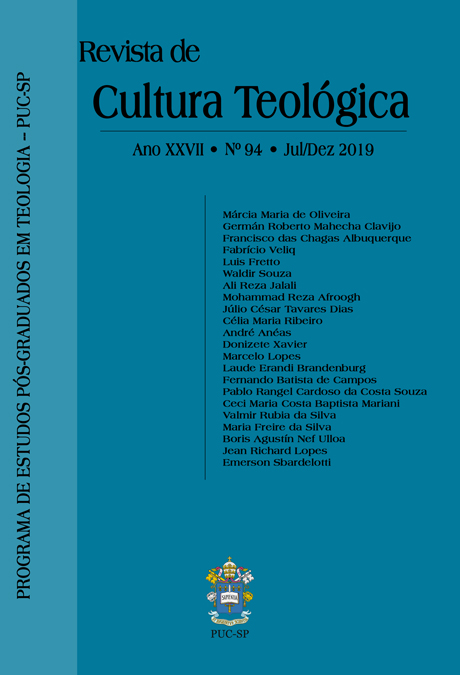A philosophical study of the man and his nature in the Holy Quran and the ancient Upanishads
DOI:
https://doi.org/10.23925/rct.i94.41004Palabras clave:
Soul, Atman, Qur'an, Upanishads, human natureResumen
Human nature is a complex subject and it is difficult to grasp full knowledge of philosophical explanations of human beings. The kind of look and ideology that a religion or school gives to human beings is basically effective in the form and structure of that religion. It can be said that without knowing and being familiarized with the anthropology of a religion, its knowledge is not complete. In this study, we are going to discuss human nature from the perspective of the book of the Holy Qur'an and the ancient Upanishads, which are two important and sacred works from Islam and Hinduism. In this essay, we try to examine the views of the two religions, based on their sacred texts, which are the Holy Qur'an and the ancient Upanishads. The Holy Qur’an views human nature as pure and unconditional, that it always seeks and loves rightness and hates falsehood and impurity, and the old Upanishads considers human nature as part of a whole, which is pure and innocent and insists on saying that God and men have a direct relationship and that He created the man from His nature.Citas
The Holy Quran
Achtemerier, Paul J. Harper’s Bible Dictionary, Harper san Francisco, 1985.
Alousi al-Baghdadi, The Spirit of Al-Mu'mini al-Taqsir al-Quran al-Aqim and al-Sabah al-Mathani (v.30), Beirut: Dar al-'Arib al-Bibni
Browning, W.R.F., Oxford Dictionary of the Bible, New York: Oxford University, Press, 1997
Brucey, Al-Sheikh Isma'il Haghi, Interpretation of the Spirit of Al-Bayan (v.10), Beirut: Dar al-'Array Al-Arabi, 1405AH
Darshak Mohammad (translator), Upanishad (Sir Akbar), Tarihat and Mohammad Reza Jalali Naiini, Tehran,1998, Scientific publication, Third edition,
Dasgupta. S . A History of Indian Philosophy, Motilal Banarsidass. Delhi. Vol. 1. 1997
Deussen. P.” Atman”, ERE. Jamis Hastings,ed. Vol. 2. England.1980.
Ebn Arabi, Mohid al-Din, Quran al-Karim (J2), 1998, Tehran; Naser Khosrow publication,
Fakhr Razi, Mohammad, Tafsir al-Fakhra al-Razi, Al-Mustaher Balfthir al-Kabir and Mu'ta'īf al-Ghab (J32, Beirut: Dar al-Fakr, 1405 AH
John B. Comprehensive History of Religions, Translation by Ali Asghar Hekmat, 1996,Tehran: Scientific and Cultural Company,
Meybodi, Abolfazl Rashid al-Din, Kashif al-Asrar and Al-Abrar, known as the commentary of Khwaja Abdullah Ansari (v.10),1996, Tehran: Amir Kabir,
Mojtabi, Fatollah, The Great Islamic Encyclopedia, Adam, Tehran, 1969
Motahari, Morteza, Collection of Works, C .3 Fitrat,1375 ,Tehran: Sadra Publication,
Nasri, Abdullah, The Perfect Man's View from School Perspectives,1997, Tehran: Allameh Tabatabaei University,
Radhakrishnan. S. Introduction on The Principal Upanishads. Harpcollins. India. Noida, 5nd impression,1997
Rumi, Jalal al-Din Muhammad, Masnavi spiritual, correction of Nicholson,1368, Tehran: Amir Kabir,
Tabatabaei, Mohammad Hussein, Al-Mizan Fei Tafsir al-Quran (c20), Beirut: Institute for the Study of Literature, 1363AH
Tivari, Kedarnot, Comparative religion recognition,1987, L


